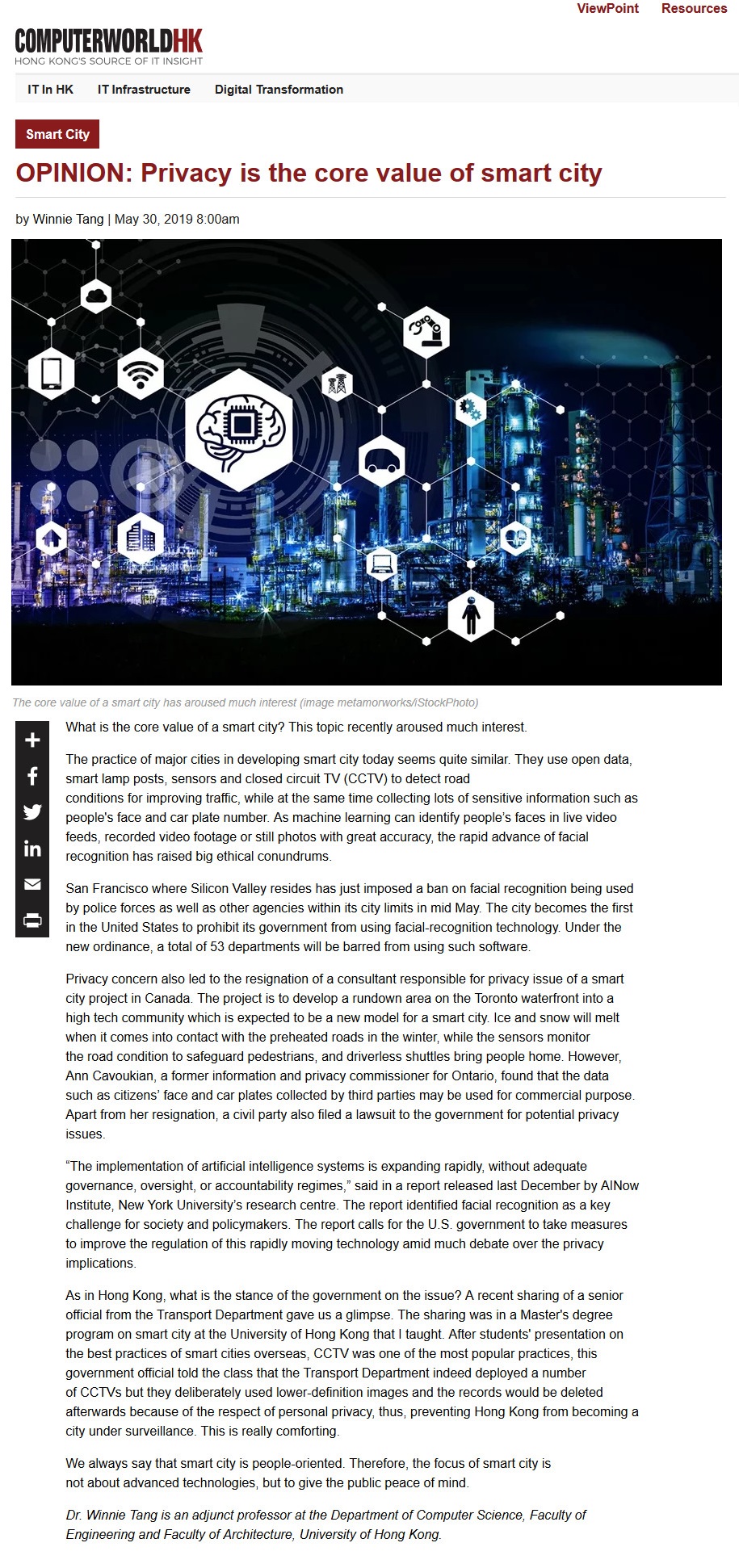網上版請按此

OPINION: Privacy is the core value of smart city
What is the core value of a smart city? This topic recently aroused much interest.
The practice of major cities in developing smart city today seems quite similar. They use open data, smart lamp posts, sensors and closed circuit TV (CCTV) to detect road conditions for improving traffic, while at the same time collecting lots of sensitive information such as people's face and car plate number. As machine learning can identify people's faces in live video feeds, recorded video footage or still photos with great accuracy, the rapid advance of facial recognition has raised big ethical conundrums.
San Francisco where Silicon Valley resides has just imposed a ban on facial recognition being used by police forces as well as other agencies within its city limits in mid May. The city becomes the first in the United States to prohibit its government from using facial-recognition technology. Under the new ordinance, a total of 53 departments will be barred from using such software.
Privacy concern also led to the resignation of a consultant responsible for privacy issue of a smart city project in Canada. The project is to develop a rundown area on the Toronto waterfront into a high tech community which is expected to be a new model for a smart city. Ice and snow will melt when it comes into contact with the preheated roads in the winter, while the sensors monitor the road condition to safeguard pedestrians, and driverless shuttles bring people home. However, Ann Cavoukian, a former information and privacy commissioner for Ontario, found that the data such as citizens' face and car plates collected by third parties may be used for commercial purpose. Apart from her resignation, a civil party also filed a lawsuit to the government for potential privacy issues.
"The implementation of artificial intelligence systems is expanding rapidly, without adequate governance, oversight, or accountability regimes," said in a report released last December by AINow Institute, New York University's research centre. The report identified facial recognition as a key challenge for society and policymakers. The report calls for the U.S. government to take measures to improve the regulation of this rapidly moving technology amid much debate over the privacy implications.
As in Hong Kong, what is the stance of the government on the issue? A recent sharing of a senior official from the Transport Department gave us a glimpse. The sharing was in a Master's degree program on smart city at the University of Hong Kong that I taught. After students' presentation on the best practices of smart cities overseas, CCTV was one of the most popular practices, this government official told the class that the Transport Department indeed deployed a number of CCTVs but they deliberately used lower-definition images and the records would be deleted afterwards because of the respect of personal privacy, thus, preventing Hong Kong from becoming a city under surveillance. This is really comforting.
We always say that smart city is people-oriented. Therefore, the focus of smart city is not about advanced technologies, but to give the public peace of mind.
Dr. Winnie Tang
Adjunct Professor, Department of Computer Science, Faculty of Engineering and Faculty of Architecture, The University of Hong Kong